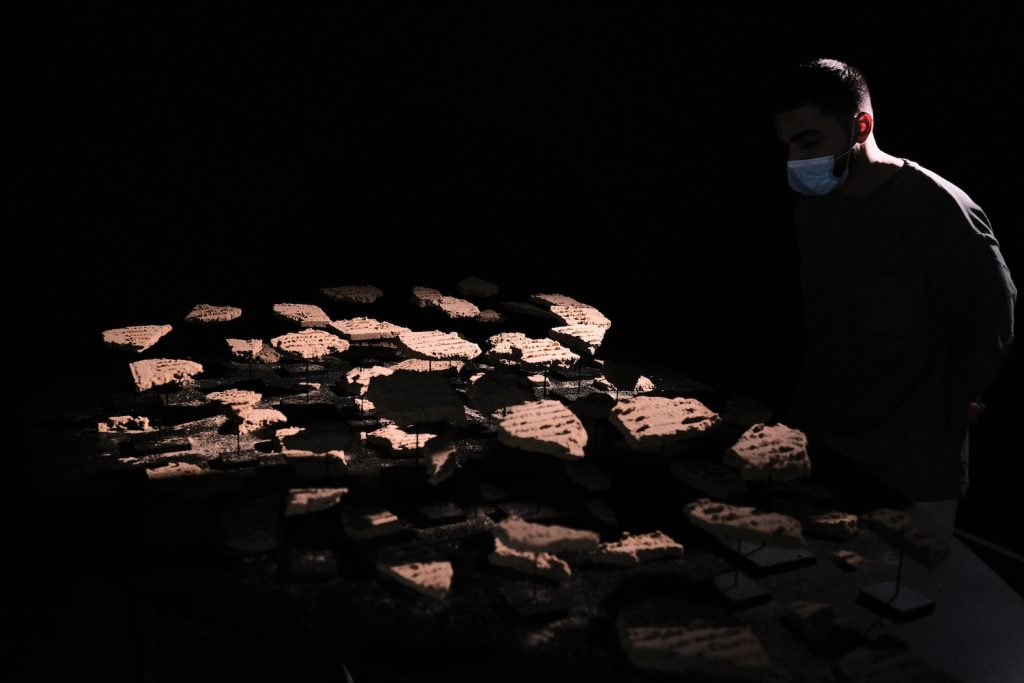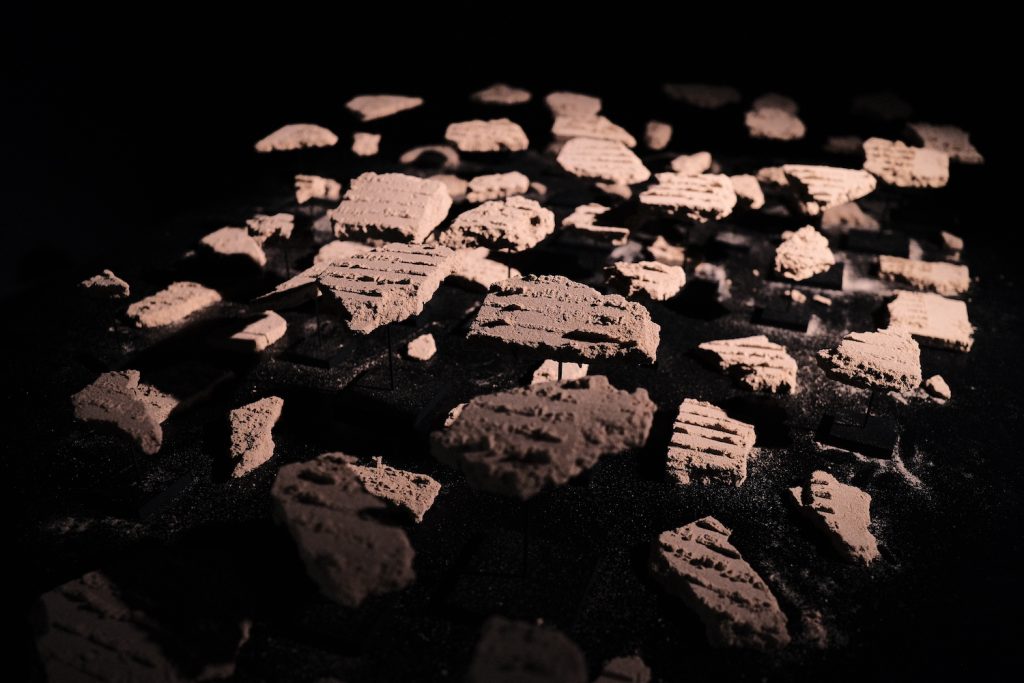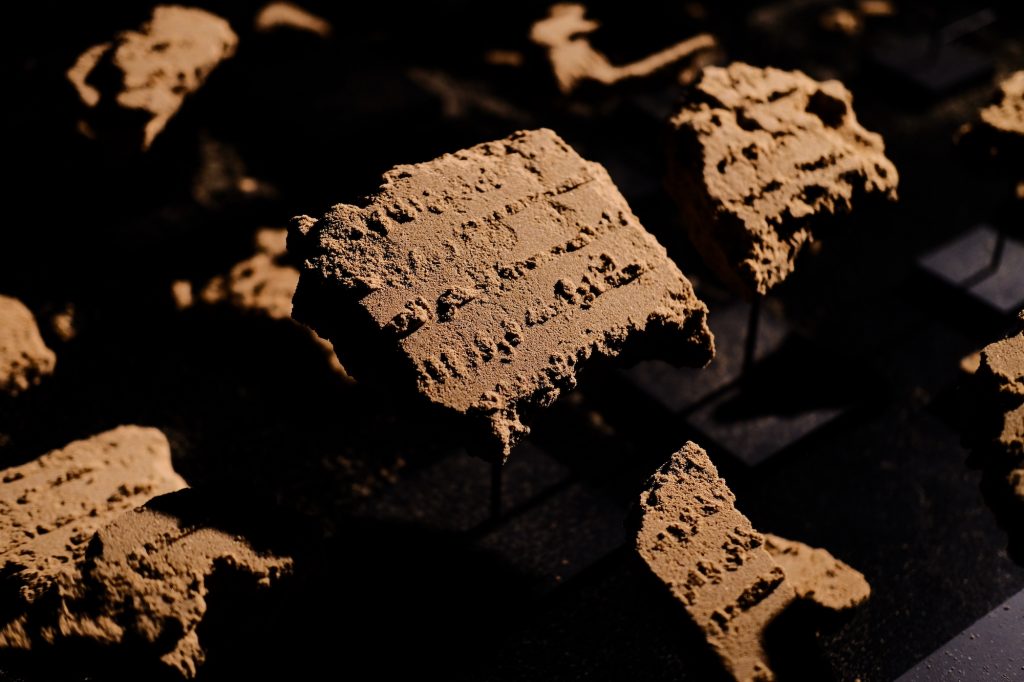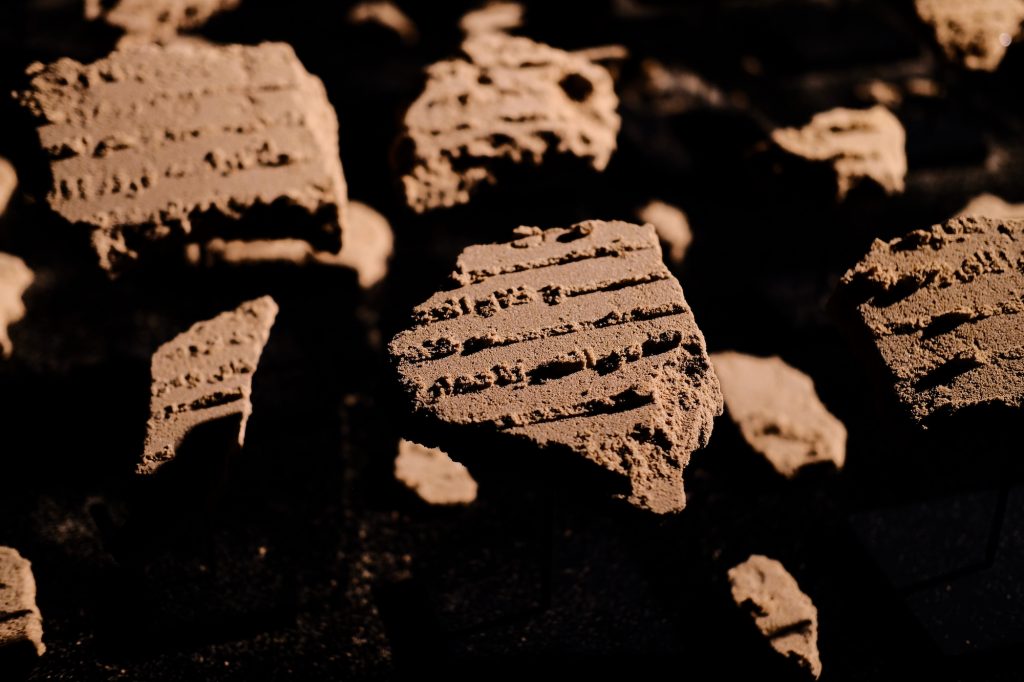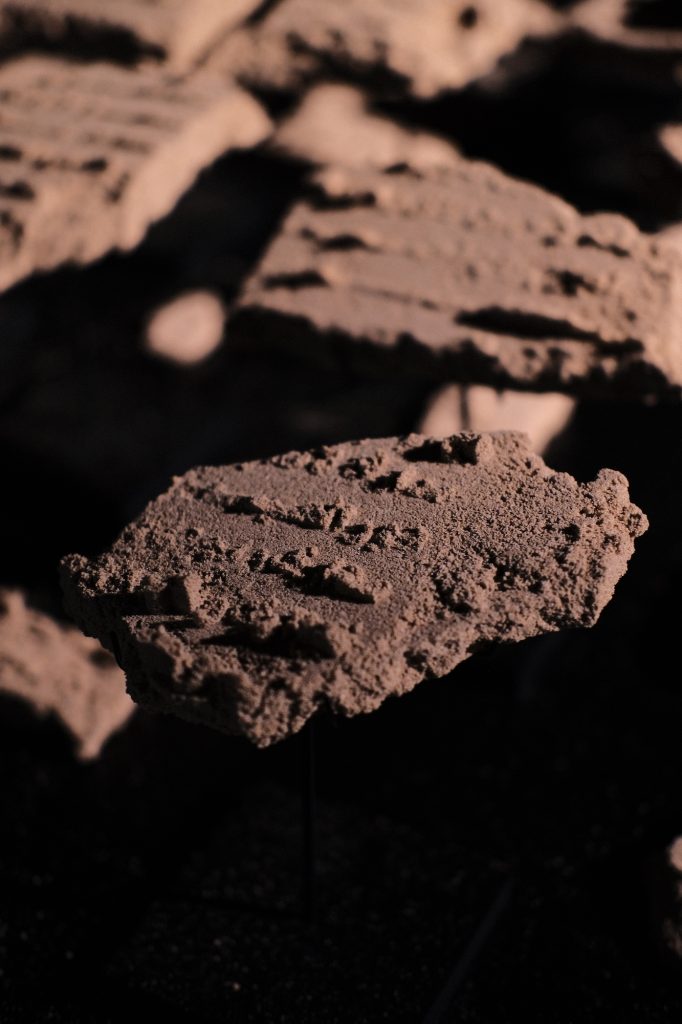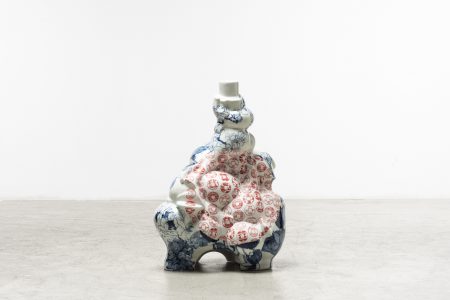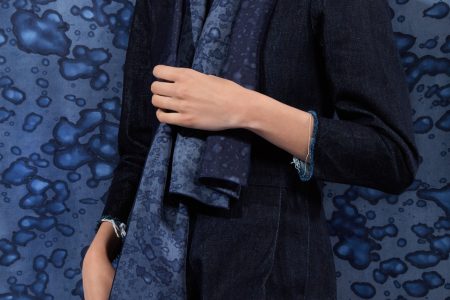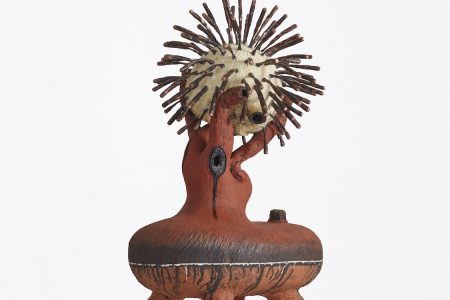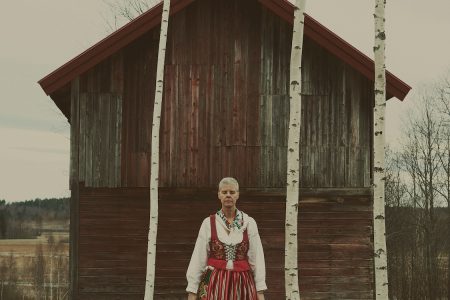Nasser Alzayani: Watering the distant, deserting the near
Nasser Alzayani’s work explores memory and myth with underlying messages of climate and cultural heritage. His installation, Watering the distant, deserting the near, was the winner of the Louvre Abu Dhabi Art Here Richard Mille Art Prize in 2021.
“It is a very human experience to have some kind of connection to a place that no longer exists — especially a natural one,” states Nasser Alzayani, who, for nearly 6-years worked on “Watering the distant, deserting the near”, a project that sought to verify a childhood memory he had of a natural spring near his hometown in Bahrain that has now gone dry. Natural springs once dotted the desert landscapes of the country, lush, verdant springs that were the source of water and life as well as the object of poems and songs. But in the last decades, many of these springs have dried up, the result of overconsumption, climate change, drilling into the waterbed for oil, among other man-made and natural intrusions.
For “Watering the distant, deserting the near” Alzayani made extensive research into the history of the spring he remembers visiting as a child, and which hold a large place in the cultural memory of Bahrain. His research included conversations with family members about their memories and experiences of the spring and looking at all the cultural production created in reference to it, such as poems, songs, media broadcasts as well as official documents. The installation includes works on paper, recordings, and a series of semi-crumbling sand tablets that very closely resemble the ancient cuneiform tablets which would have been found in the region thousands of years ago. “The sand tablets appear as though they are real but they are invented… almost like a prediction of what an archaeological object from that place might have recorded,” he says.
Through this work, Alzayani is questioning the romantic notions of archaeology while also embracing them. He is a fan of historical fiction and his work plays on that theme because he is working with real texts and real gathered evidence of the history of this place, but, as he says, “there will always be gaps, and I really enjoy these gaps because I feel like that is where I can step in and bridge the two worlds”.
The title, “Watering the distant, deserting the near”, comes from a poem written by a well-known Bahraini poet, Ali Abdulla Khalifa, that was adapted into a song. The lyrics are what delicately appear on the surface of the sand tablets. As Alzayani describes it, the phrase referred to how large and far reaching the waters were, but was also subversively commenting on the allocation of the spring’s natural resources and how people with money and power were using more of its resources than the poor farmers living around the spring. The song was eventually banned from the local radio and the poet had to flee the country for some time.
The tablets were exhibited at the Louvre Abu Dhabi in July 2021, where they were presented on metal armatures, so that the work confronts how artefacts are often shown in a museum, but also the issue of “how to deal with something that is dissolving while being exhibited,” he notes. “The sand tablets are fragile but solid enough to be put on display and they are reflecting the fragility of the landscape as well as the memory of the landscape”.
The installation, “Watering the distant, deserting the near” was the winner of the Louvre Abu Dhabi Art Here Richard Mille Art Prize in 2021. This article originally appeared in the A/W 2022 issue of: TLmag38: Origine/Origin.
@nasseralzayani
